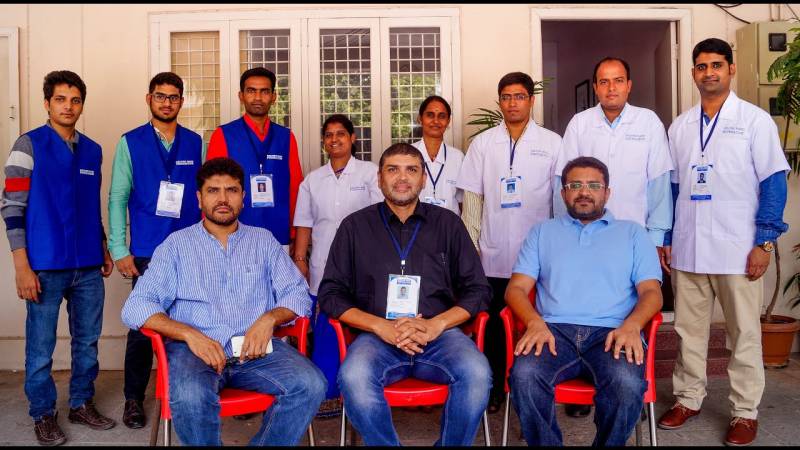A friend in need; a helpful ferry for out-of-district patients
By J.S. Ifthekhar
Hyderabad: Jyothi couldn’t believe her eyes when she found a cab waiting for her when she emerged from the MNJ Cancer Hospital. Her daughter, baby Roshini’s four-month-long treatment for leukaemia had left her both physically and financially drained.
“Ma’am, please take your seat,” the gentle voice of the hospital volunteer broke her thoughts as he held the cab door open for her. She comfortably rode to Jubilee Bus Station for her onward journey to her hometown.
From being taken for a ride to getting free rides, patients in government hospitals are in for a pleasant surprise. They are now getting transport at no cost from their places of treatment to public transport points in Hyderabad — something unheard of in the country.
A person has two hands — one to help himself and the second to help others. That’s what Mujtaba Hasan Askari of the Helping Hand Foundation (HHF) is doing. True to its name, his NGO is reaching out to poor and distressed families in a different way. A small goodwill gesture apparently, but it is making a world of difference to needy patients.
With the introduction of the ‘Humsafar’ scheme, HHF is bringing joy to scores of underprivileged patients every day. It is a simple technique of roping in two of the country’s largest taxi aggregators — Ola and Uber — into the public health care system. In addition to cabs, HHF is also making use of its eight ambulances to ferry patients in non-emergency cases. In the last two years, more than 5,000 patients have benefitted from the scheme. HHF incurs a monthly expenditure of about Rs 40,000 towards its free transport service, spending an average of Rs 150 per trip. There is a bit of social media expertise involved in the operation.
“The request from hospitals is routed through our volunteers. Moreover, they, in turn, send us a WhatsApp message with the patient IP No, name and destination. The cab is booked at our head office, and a confirmation message is relayed back to the volunteer. Once the cab reaches the hospital, the patient is assisted by our volunteers in boarding the vehicle,” says Askari.
The service has turned out to be a big boon to poor, illiterate patients who reach Osmania General Hospital, Gandhi Hospital, MNJ Cancer Hospital, Chest Hospital, ENT Hospital and Nizamia Unani hospital from nearby districts. They need handholding, as they are ignorant and become easy prey to auto-rickshaw drivers, who charge exorbitant amounts to ferry patients from hospital to railway stations, bus depots and sometimes to the Chief Minister’s camp office to seek aid. All this is now taken care of by HHF and its string of Praja Arogya Mitras. Every month the HHF is touching nearly 200 patients’ lives in 10 government hospitals in the city through its patient care centres.
The idea took shape when a survey showed that nearly 80 per cent of patients who seek treatment in government hospitals depend on auto-rickshaws. Moreover, they end up paying twice the money they spend on coming to the city from nearby districts.
“Now, there is no need to run around. HHF is handling everything,” says Shiva, who used the cab service after his appendicitis surgery at OGH. As demand picks up, Askari plans to run the scheme in PPA mode with government support or go for crowdfunding. After all, helping hands are better than praying lips.